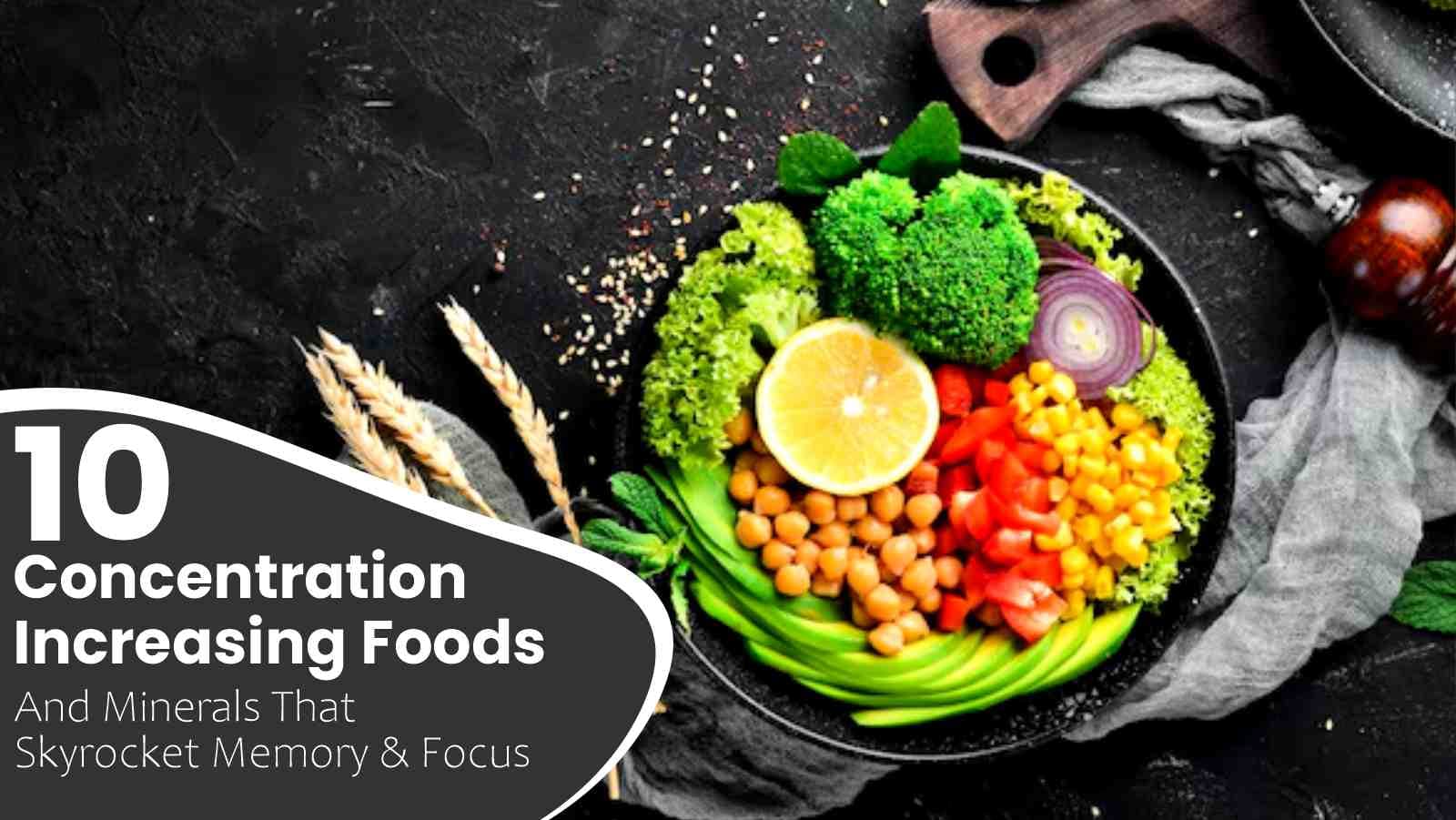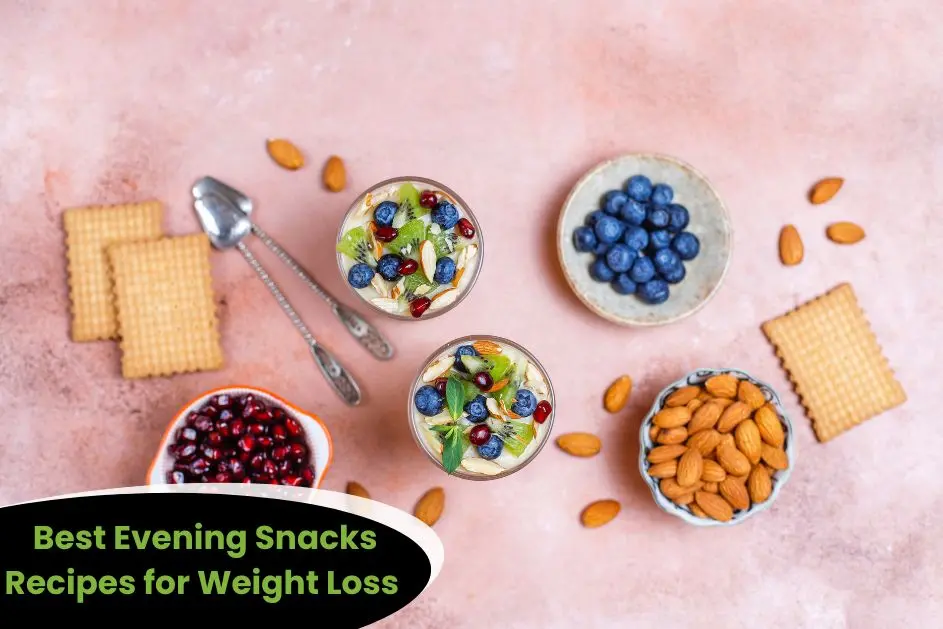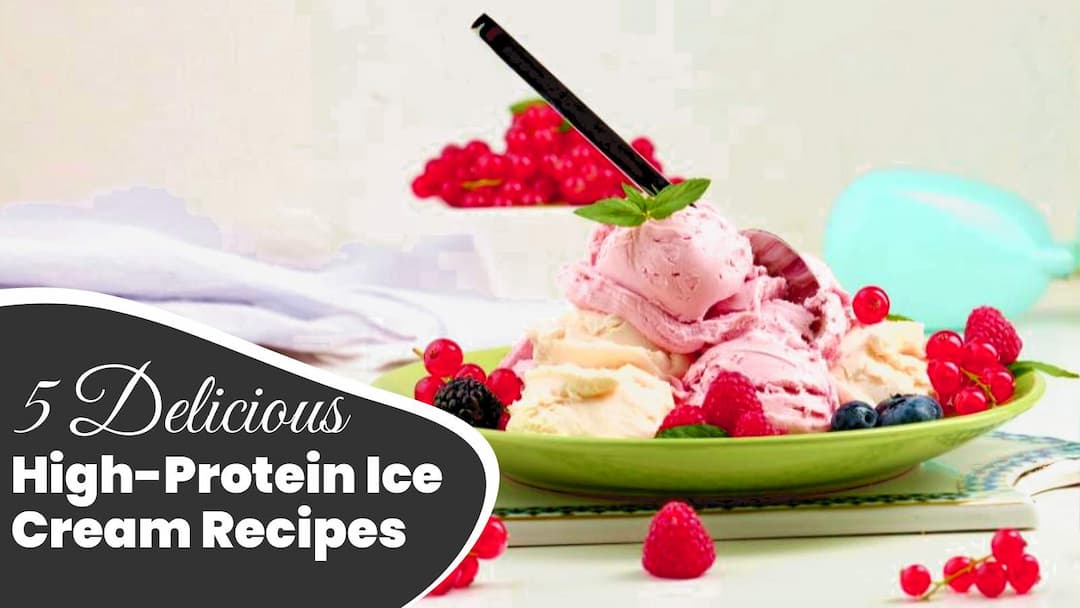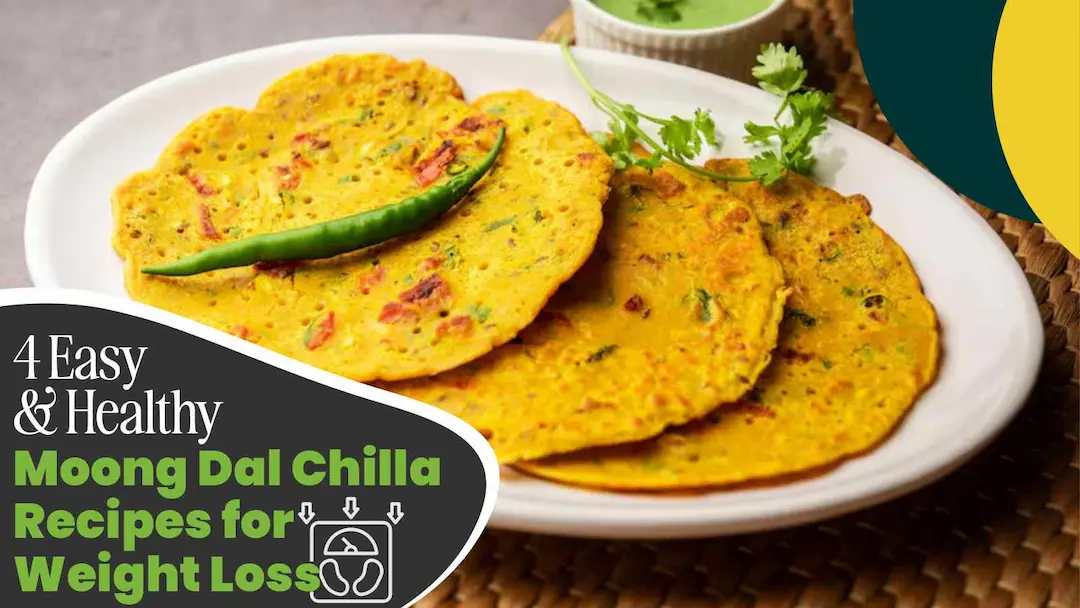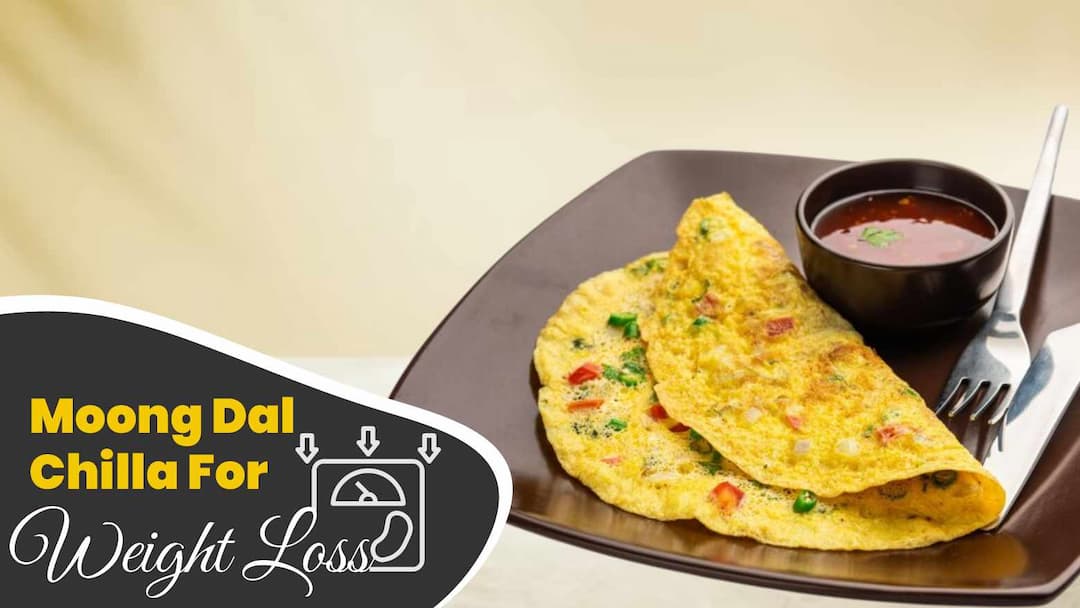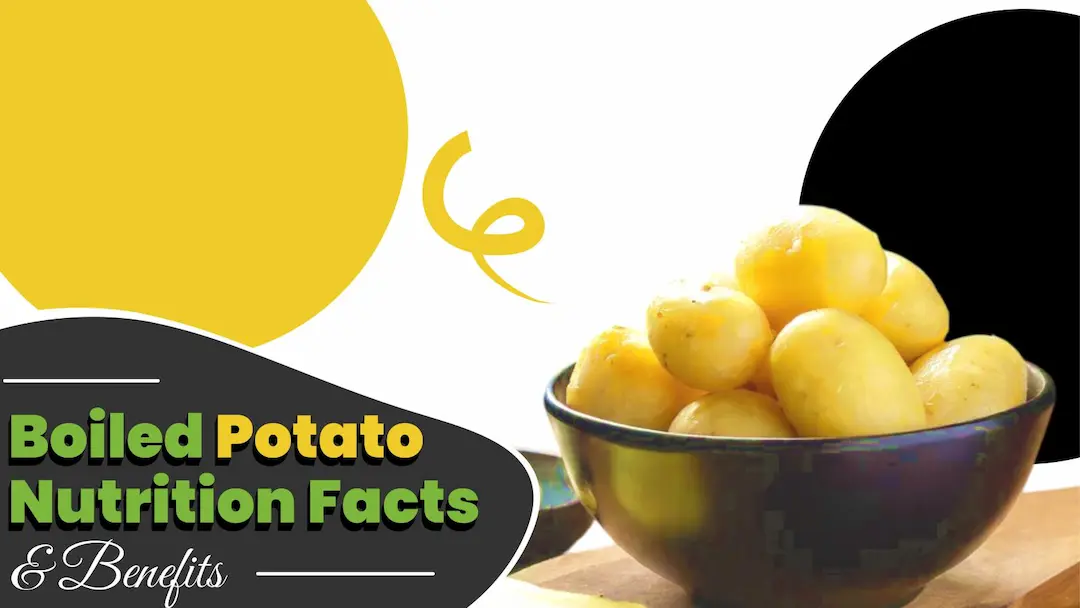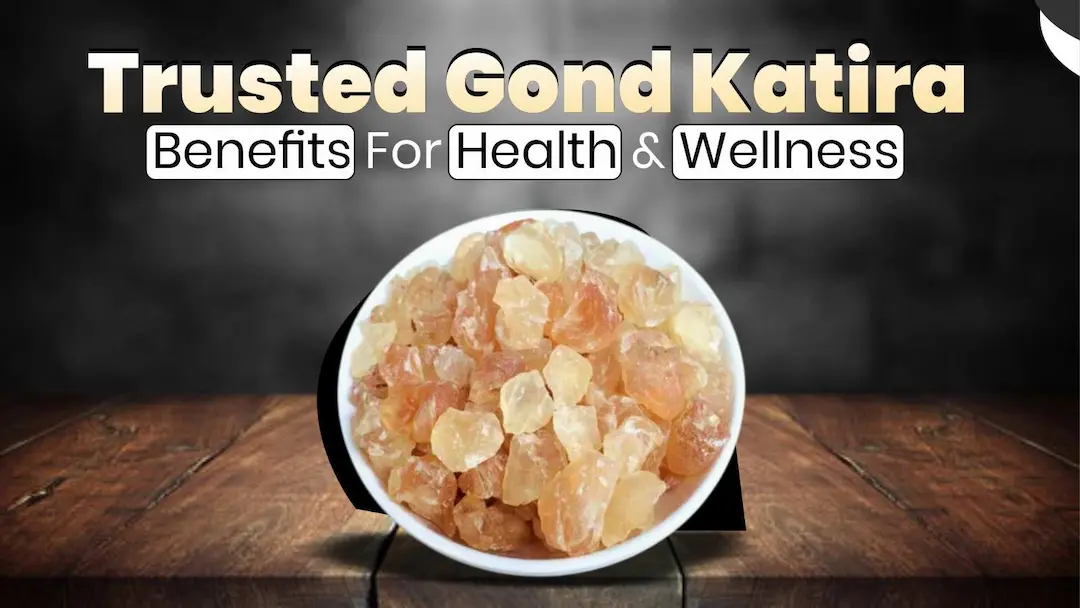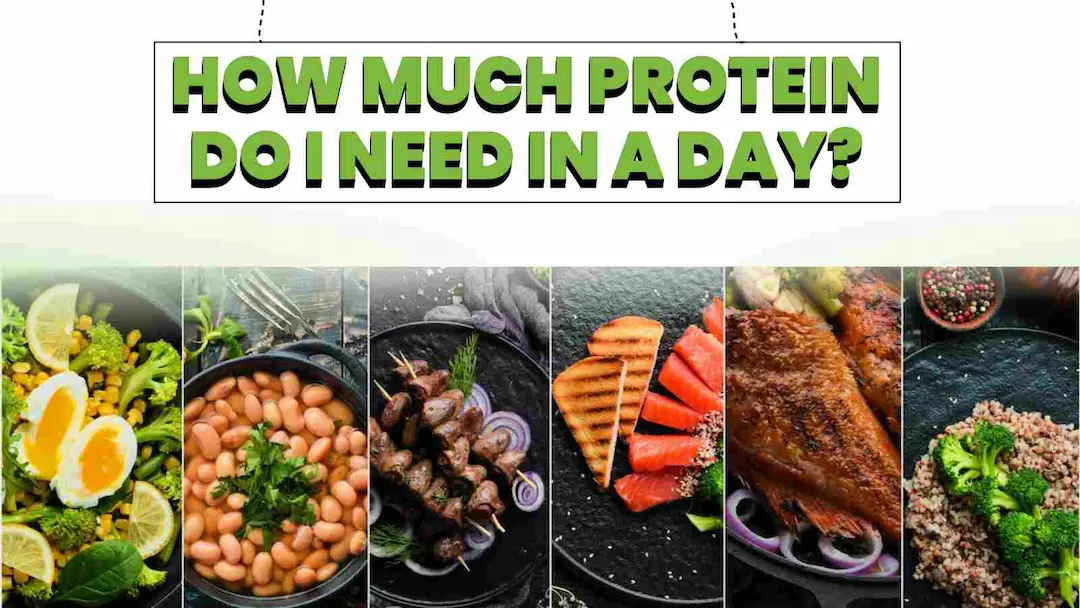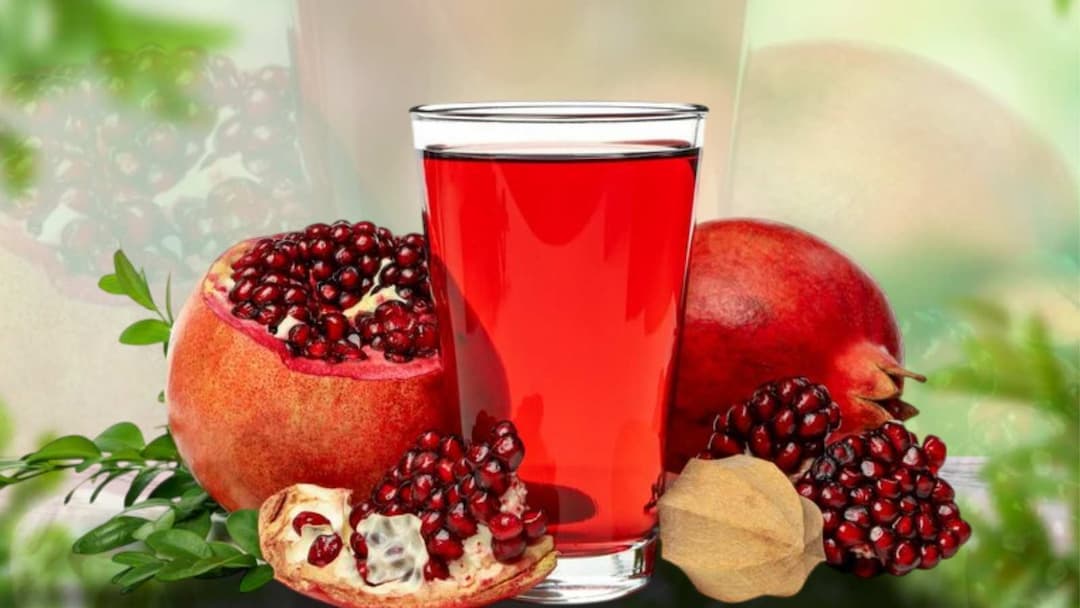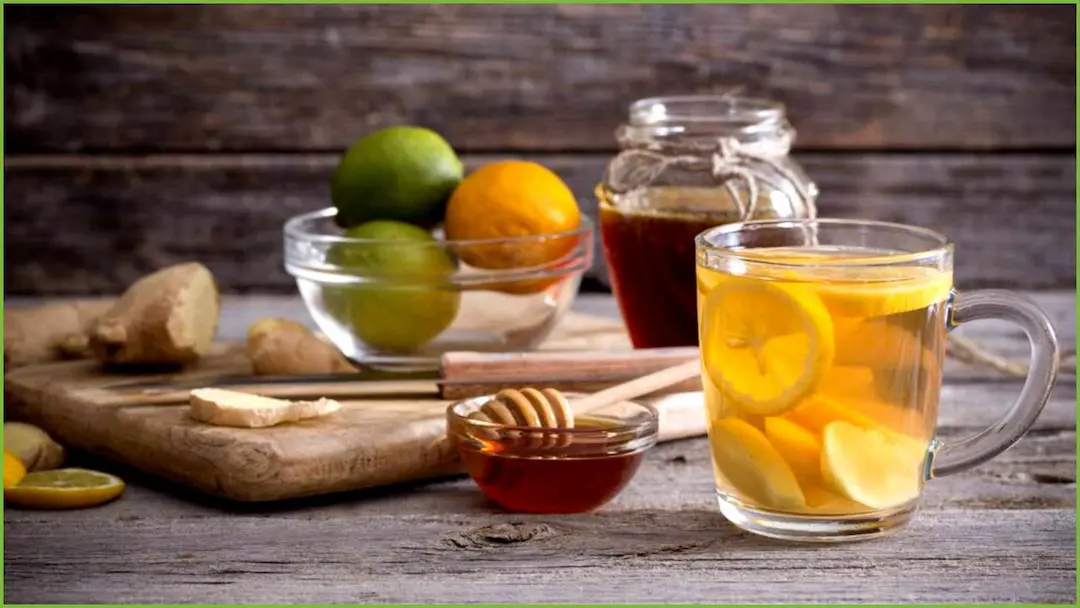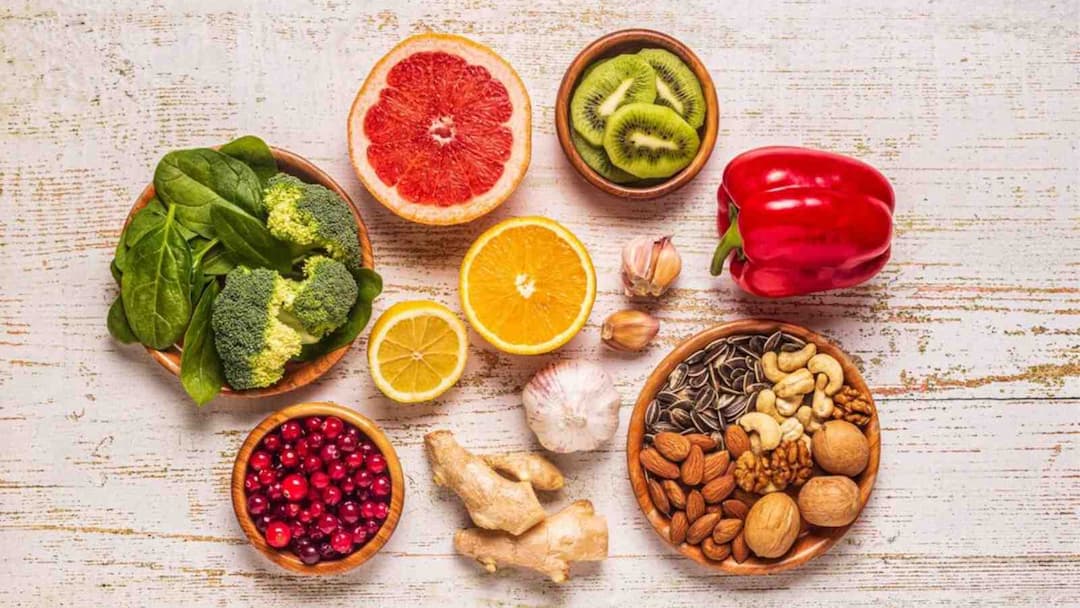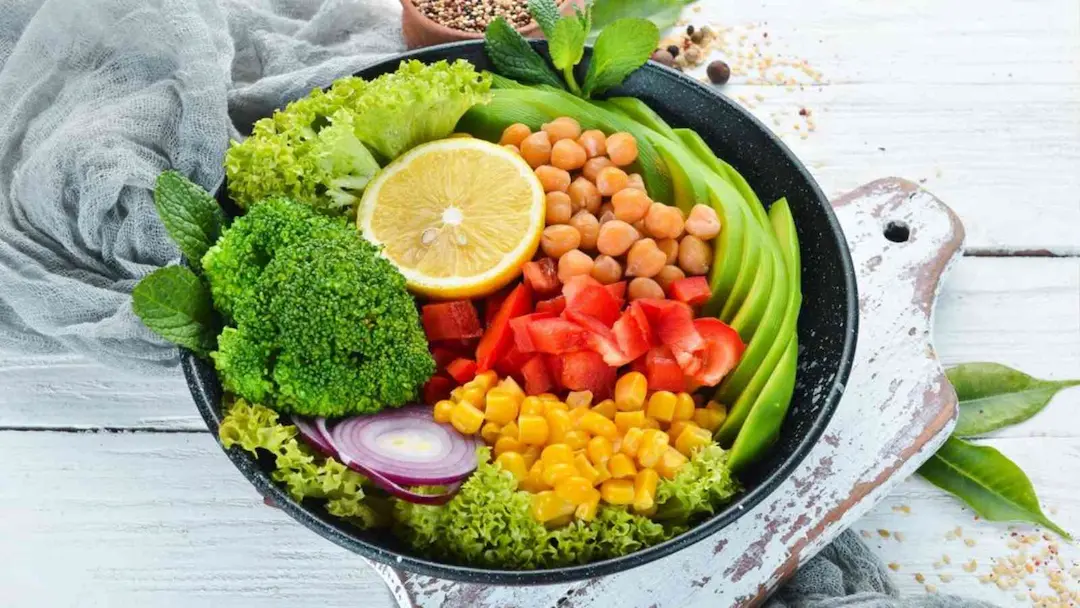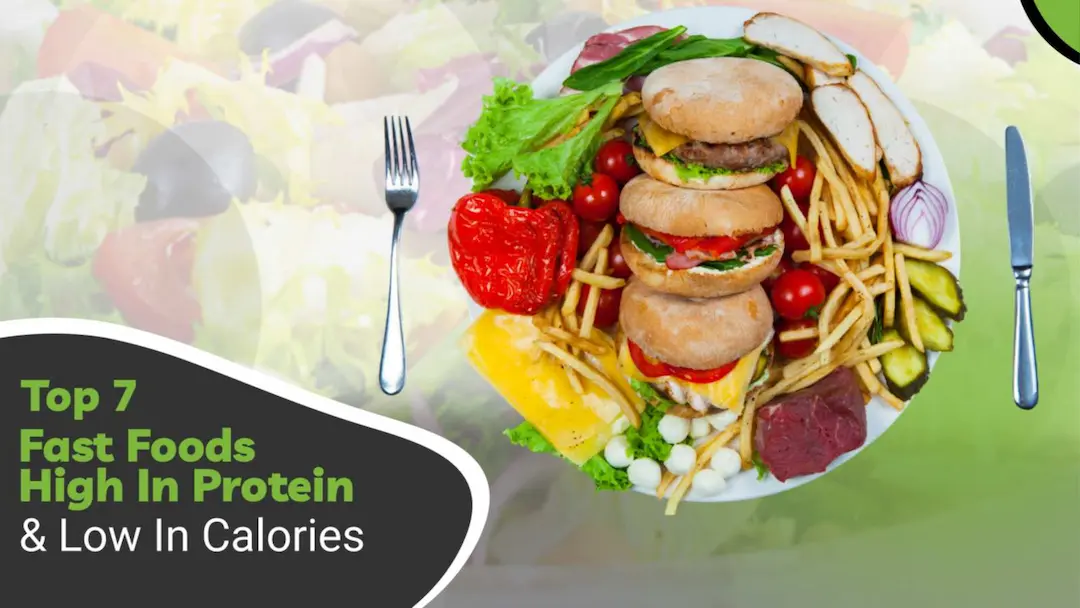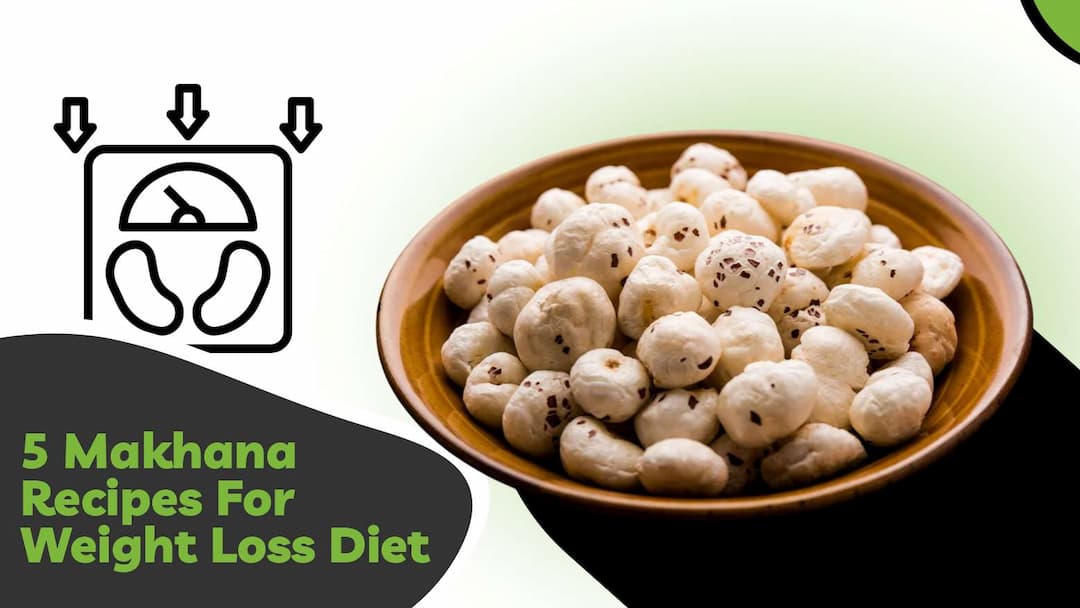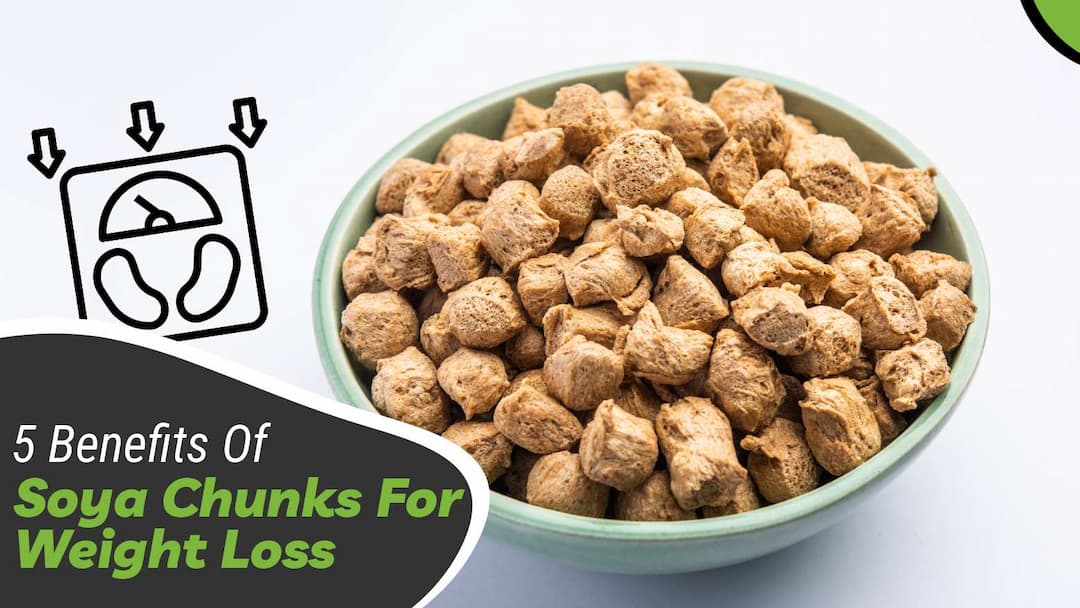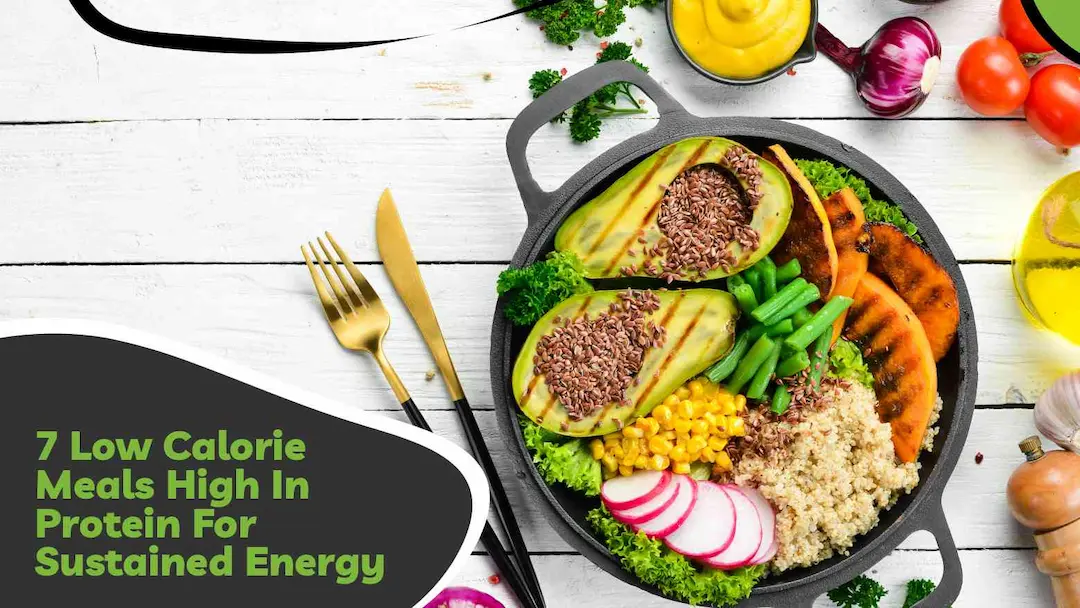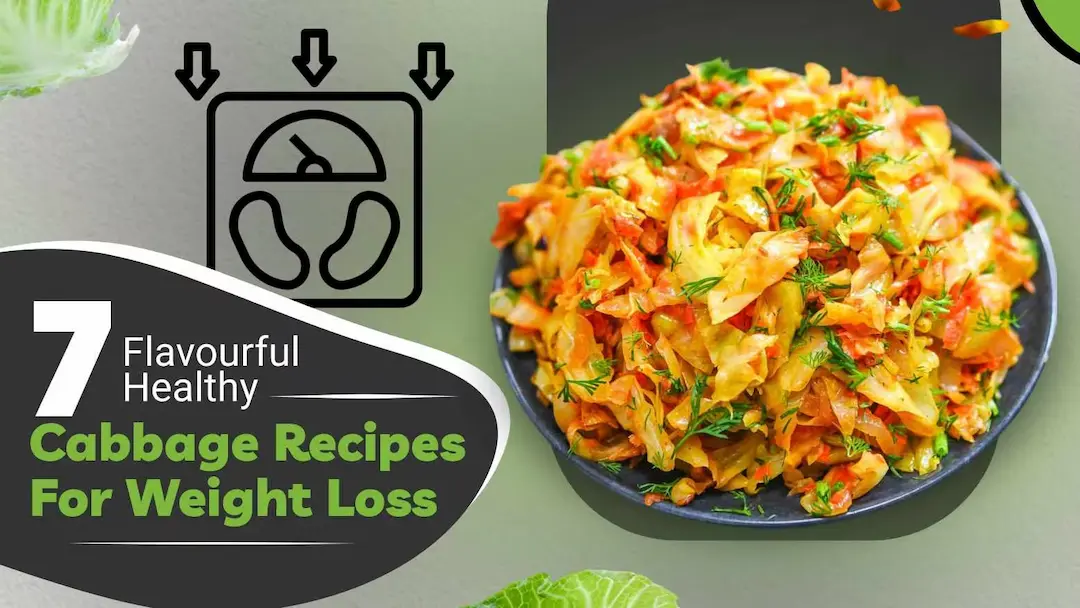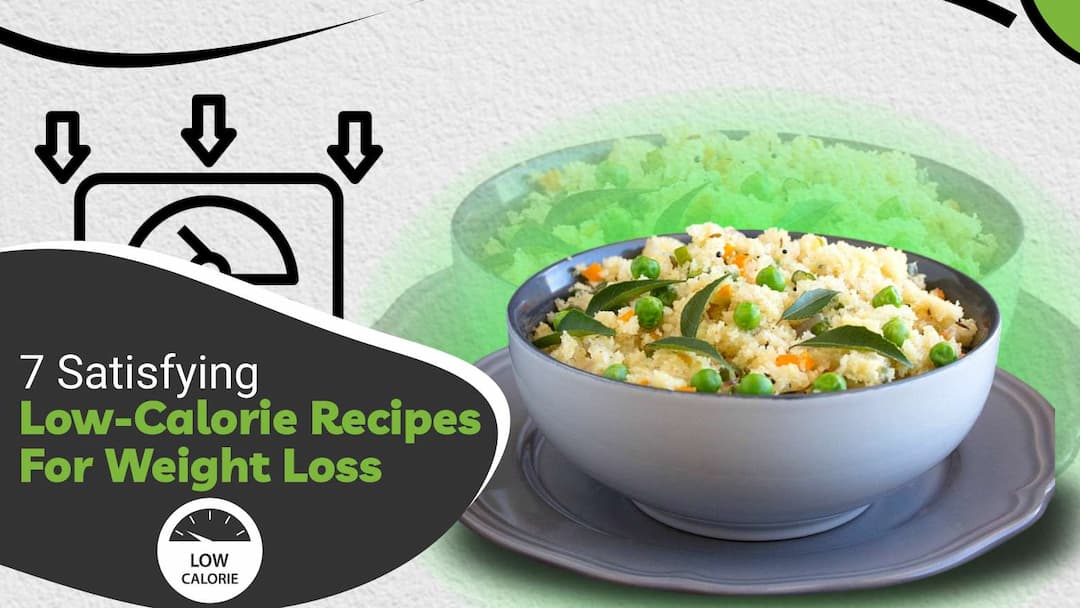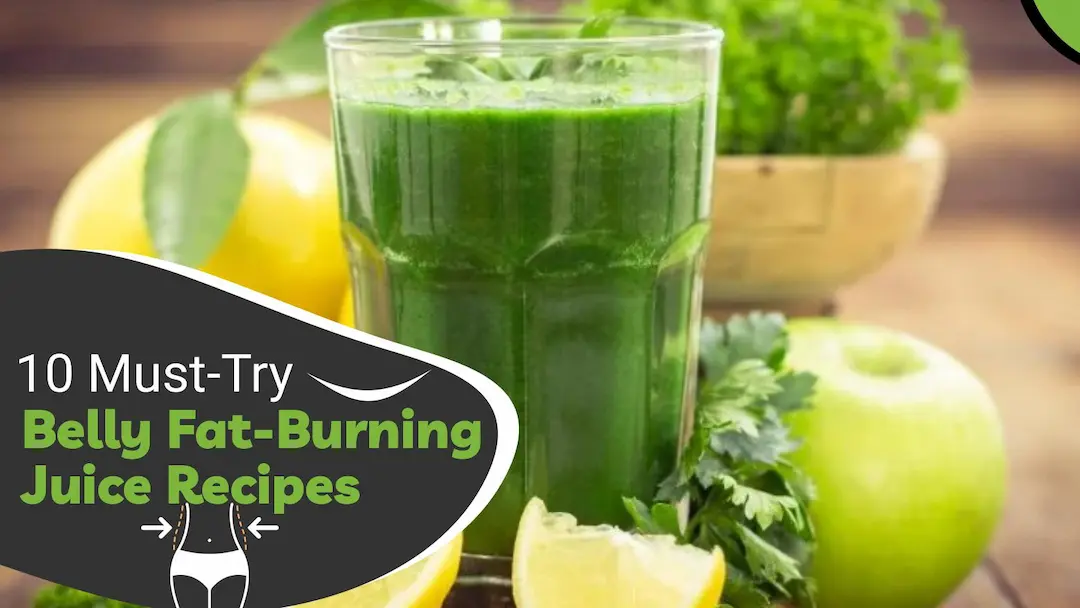Ever feel like your brain has a million tabs open, and they're all frozen? We've all been there, trying to focus but getting distracted by, well…everything. Whether it's for school, a big project, or just everyday life, we could all use a little boost to stay sharp and focused.
The brain is the central part of our body and just like other body organs, it needs nutrients that can be able to help it work efficiently. Think of it this way: Your brain works 24/7, even while you sleep, regulating the entire nervous system and sending signals and instructions from one part of the body to another. So, naturally, it deserves some extra attention from time to time!
Good news—what you eat can actually make a big difference! Yes, concentration increase foods are a real thing, and they don’t just include leafy greens or mystery superfoods. There are some really cool and tasty options that can power up your brain, make you more alert, and even improve memory.
Ready to find out which snacks and minerals are your new BFFs for focus? From berries to nuts and even chocolate (yes, chocolate!), these are the foods for memory improvement and concentration that will help you unlock your brain’s full potential. So, let’s get in and snack smart for that A-game focus!
Table Of Contents
- About Concentration Increasing Foods
- What Foods Help Memory And Focus or What Are The 10 Best Brain Foods?
- Important Minerals And Foods For Memory Improvement And Concentration
- Dietitian’s Recommendation
- The Final Say
- FAQs
- References
About Concentration Increasing Foods
Certain foods enhance concentration by influencing neurotransmitter synthesis, receptor sensitivity, and signalling pathways critical for cognitive function. For example, nutrients like omega-3 fatty acids activate the peroxisome proliferator-activated receptor-gamma (PPAR-γ), which modulates anti-inflammatory responses in neurons, promoting synaptic plasticity crucial for focus. Additionally, these nutrients increase levels of brain-derived neurotrophic factor (BDNF), a protein essential for neurogenesis and synaptic strength, enhancing memory and attention pathways.
At the cellular level, amino acids in certain foods serve as precursors for dopamine and acetylcholine, neurotransmitters that bind to D1 receptors and nicotinic receptors, respectively. This receptor activation initiates the cAMP pathway, increasing intracellular calcium and enhancing signalling between neurons in the prefrontal cortex, a region key to sustained attention. Mitochondrial ATP synthesis is also optimised, providing energy to neurons and further enhancing concentration and cognitive endurance.
Also Read: 10 Best Foods For High Blood Pressure: Your Guide to Healthy Choices and Foods to Avoid
What Foods Help Memory And Focus or What Are The 10 Best Brain Foods?
Following are some of the best concentration increase foods:
1. Fatty Fish Are Literally The Fundamentals
Yes, indeed, because omega-3 fatty acids are actually one of the most important aspects of brain health, and fatty fish are suffused with it. About 60% of your brain is fat, and 50% of your brain fat is omega-3 fatty acids. Omega-3 fatty acids are known to improve memory and learning and are essential for the development of the brain and nerve cells. Eating fatty fish like salmon, trout, and sardines can also prevent diseases like Alzheimer's and slow down age-related mental decline, according to research.
To further boost your brain health, consider adding omega-3 supplements such as ToneOp Care’s Fish Oil Capsules or Flax Seed Oil Capsules.
2. Berries A.K.A Berrylicious Fuel For Your Mind
Berries high in antioxidants, like mulberries, blackberries, blueberries, and strawberries, lessen oxidative stress. A study shows that antioxidants present in berries can help:
- Improve communication between brain cells
- Support learning and memory by increasing brain plasticity
- Preventing or delaying cognitive decline
3. Whole Grain Power To Gain Brain Power
Reduced brain activity is linked to elevated blood sugar. Whole grains have a lower glycemic index than refined carbs, which measures how quickly sugar is released into the bloodstream by particular diets. So they slowly break down in your body and gradually release sugar, allowing your brain to function more efficiently. Plus, they make awesome breakfast for weight loss.
Some healthy whole-grain alternatives to include in your diet are:
- Whole wheat bread
- Whole grain pasta
- Quinoa
- Oatmeal
- Brown rice
- Buckwheat
4. Leafy Greens For A Focused Routine
Kale, spinach, lettuce, broccoli—there are just so many leafy greens that are perfect for the brain. These hold essential antioxidising agents, nutrients, and vitamins that promote better brain health and slow down cognitive decline. Green leafy vegetables are also a storehouse of lutein and folate, reducing inflammation in the brain and fighting the onset of Alzheimer's disease.
5. Nuts and Seeds Are Brain Snacks
They have much more significant levels of omega-3 and antioxidants; thus, they are some of the best foods to be consumed by your brain. Some of their nutritional contents are high in nutrients, including vitamin E, which protects the cortex from damage caused by age-related oxidative stress.
A study indicates how frequent intake of nuts reduces age-related impairment of memory. In addition, women who eat nuts have better memories when they get older. While you may consider adding almonds, hazelnuts, and sunflower seeds to your diet, walnuts are the best brain food, with higher levels of antioxidants than other nuts and seeds.
For best benefits, include ToneOp Care’s Sunflower Seeds and Pumpkin Seeds in your diet.
6. Coffee Gives That Caffeine Kick For Clarity
Known for inducing instant alertness, the caffeine in coffee can help improve the overall functioning of your brain. It is also a rich source of antioxidants that support better brain health as we age. Research also shows that lifelong coffee consumption can prevent the progression of cognitive decline and even Alzheimer's disease. However, make sure you don't consume too much coffee, as caffeine can disrupt your sleep cycles and is not for everyone.
Also Read: Is Cold Coffee Good For You? Here Are Some Insights That Can Help You Get Your Answers!
7. Peel Back The Distractions With Oranges
All you need to enhance your cognitive function and promote the health of your brain is one medium-sized orange, which is high in vitamin C. A potent antioxidant, vitamin C shields your brain cells from aging-related harm. Additionally, it aids in the prevention of mental illnesses like schizophrenia, anxiety, and sadness. Plus, you can use oranges to make the most delicious immune-booster juices. Other foods high in vitamin C that are good for the brain include:
- Guavas
- Kiwi
- Tomatoes
- Peppers
8. Avocado Vibes With A Sharp Mind
This juicy fruit is loaded with healthy unsaturated fats that lower blood pressure and subsequently prevent cognitive decline. Avocado offers several benefits for all organs, including the brain, making it the best brain food for all age groups. Additionally, the monounsaturated fats in avocados promote healthy blood flow and further boost brain health.
9. Eggs Are Eggsactly What You Need To Concentrate
Eggs are great memory meals since they include a number of vital minerals. Rich in folic acid, vitamin B-12, and B-6, eating eggs on a daily basis helps prevent brain shrinkage and postpone cognitive loss. In addition, egg yolk is a great source of choline, which is known to improve brain function and memory.
10. Dark Chocolate, A Sweet Treat For Smart Thinking
Here's a fantastic reason to include dark chocolate in your diet if you have a sweet craving. Dark chocolate's potent antioxidants and organic stimulants, like caffeine, can enhance your mood in addition to your memory and concentration! Dark chocolate's flavonoids aid in memory and learning, and its antioxidants guard against cognitive decline.
Important Minerals And Foods For Memory Improvement And Concentration

Here are some important minerals and foods for memory improvement and concentration:
1. Omega-3 Fatty acids
These nourishing fats play a significant part in maintaining brain health. Omega-3 fatty acids assist the signals to pass between nerve cells, making it possible for the brain to communicate swiftly and simply. They are also recognised for enhancing focus and are considered one of the superior nutrients beneficial for memory. You can get them through fatty fish, eggs, avocados, walnuts, and flaxseeds.
Try ToneOp Care’s unroasted Flax Seeds or add in Krill Oil Capsules to boost your omega-3 intake.
2. Lycopene
This antioxidant reduces inflammation and supports brain growth. Lycopene’s antioxidant properties also help keep bones strong and eyes healthy. Tomato products, such as ketchup, tomato juice, and pizza sauce, contain high amounts of lycopene. Pink and red fruits and vegetables, such as watermelon, bell peppers, and red carrots, are also good sources of this important antioxidant.
3. Flavonoids
Flavonoids, another type of antioxidant, may reduce the risk of developing Alzheimer's disease by up to half. Major sources of flavonoids include pears, oranges, cabbage, beans, broccoli, spinach, tea, wine, tomatoes, and olive oil.
Cocoa is another way to get flavonoids. Researchers found that consuming dark chocolate (70% cacao) improved brain plasticity, which is important for learning. Cocoa flavonoids can also promote the growth of neurons and blood vessels in the parts of the brain responsible for memory and learning.
4. Choline
Choline acts as a messenger in the brain, helping brain cells communicate with muscles. It also helps reduce inflammation and is one of the best nutrients for memory. Eggs, Brussels sprouts, lima beans, and wheat germ are good sources of choline. Taking a daily choline supplement is also an option.
5. Fibre
Two fibre kinds exist, both good for brain health. One type is digestible fibre, which becomes a gel when mixed with water and aids in reducing cholesterol while maintaining blood sugar levels.
High amounts of cholesterol are connected to higher stroke risks; on the other hand, elevated blood sugar can raise Alzheimer's disease risk. Onions, oats, beans, bananas, strawberries, oranges, apples and carrots have good digestible fibre.
Insoluble fibre is beneficial for feeding bacteria in the gut, which aids brain development. Some fibre-rich Indian foods include nuts, whole grains, brown rice, and flax; rye is a food item that contains insoluble fibre.
6. Iron
Iron is essential for brain health as it plays a critical role in various cognitive functions. It is involved in the production of neurotransmitters, which are chemicals that transmit signals in the brain, influencing mood, learning, and memory. Studies have shown that adequate iron levels can enhance cognitive performance, particularly in children and adolescents, by improving attention and memory skills.
7. Vitamin B
This family of vitamins protects your brain in several ways. B vitamins, such as thiamine and niacin, help your brain metabolise nutrients into energy. Other nutrients, such as vitamin B12 and folic acid, may help prevent dementia by breaking down homocysteine, a harmful substance that can lead to Alzheimer's disease.
A balanced diet consisting of lean meats, poultry, fish, dairy products, whole grains, fruits, and vegetables. If you're a strict vegetarian or vegan, consider taking a B12 supplement. This vitamin is only found in animal products.
8. Vitamin D
Vitamin D doesn't just keep your bones and heart strong. It can also help you maintain a brighter frame of mind by helping your brain cells produce mood-regulating neurotransmitters like dopamine and serotonin.
Primary sources of vitamin D: Trout, salmon, organ meats (such as liver), milk, fortified cereals, and eggs.
9. Protein
Healthy muscles don’t just keep you strong. They’re also linked to improved cognitive abilities in older adults. A high-protein diet provides the building blocks for maintaining muscle mass, which is especially important since most people start losing muscle mass by age 40. For optimal muscle health, aim for 30-gram protein meals per day.
Top protein sources: lean meats, poultry, seafood, eggs, milk, yoghurt, cheese, tofu, beans, and lentils.
10. Selenium
It supports the brain’s antioxidant capacity. Selenium also plays an important role in reproduction, thyroid hormone metabolism, DNA synthesis, and protection against oxidative stress.
Also Read: 11 Vegetables For Eyesight Improvement! Unlock How Vegetables Can Help Boost Your Eyesight Naturally
Dietitian’s Recommendation
Eating a healthy and wholesome diet that includes brain-supporting foods can help improve brain health and regulate cognitive abilities and memory. So, your diet has a significant impact on brain health. By including these above-mentioned foods in your daily diet, you can not only improve memory and brain performance but also protect it from age-related mental decline.
Dt. Lavina Chauhan
The Final Say
To boost your brainpower, incorporating concentration-increasing foods into your diet is essential. Berries can be used to improve memory and concentration, as they have antioxidant contents that protect the cells in the brain from damage. Oily fish, such as salmon, has omega-3 fatty acids, which aids the development of the brain. Nuts give healthy fats and vitamins that enhance cognitive function.
Including these foods regularly can make a big difference in how well you concentrate and remember things. So, if you want to skyrocket your memory and focus, try adding these delicious concentration-increasing foods to your meals!
FAQs
1. Which vegetables increase memory power?
Vegetables like broccoli, spinach, and kale are great for boosting memory because they are rich in antioxidants and vitamins that support brain health.
2. Which food is best for brain development?
Oily fish, such as salmon, is one of the best foods for brain development because it is high in omega-3 fatty acids, which are essential for brain growth and function.
3. Is there any drink that can improve concentration?
Yes, drinks like green tea and coffee can improve concentration because they contain caffeine and antioxidants that help boost alertness and focus.
References
- https://www.unitypoint.org/news-and-articles/15-brain-foods-that-may-help-preserve-your-memory
- https://www.metropolisindia.com/blog/preventive-healthcare/foods-to-improve-brain-health-and-memory
- https://www.maxhealthcare.in/blogs/10-memory-boosting-foods
- https://m.netmeds.com/health-library/post/brain-foods-that-help-you-concentrate?srsltid=AfmBOooVR-9-OkYMhdjUXBNiR4-CmAItL8sUcN_cnmSTpyFCN_055FGi
- https://pmc.ncbi.nlm.nih.gov/articles/PMC2805706/
- https://www.nutritionnews.abbott/healthy-living/diet-wellness/the-top-5-nutrients-for-the-brain/
- https://www.sagewoodlcs.com/blog/best-nutrients-for-memory/
- https://m.netmeds.com/health-library/post/brain-foods-that-help-you-concentrate?srsltid=AfmBOoq9o4bQKSA3QaoMQqfNL-EFFC2VnZTIivqsylNAGLb68cyOkx5A
- https://www.ndtv.com/health/foods-for-brain-10-essential-nutrients-that-can-sharpen-your-brain-3504803
About ToneOp Eats
ToneOp Eats is your go-to health kitchen, delivering nourishing meals in Bhopal, Indore & Bangalore. The meals are prepared with strategically planned nutrition and portions for your health goal. With just three simple steps, you can subscribe to a meal plan for weight loss, muscle gain, or balanced diet goals. Experience the perfect blend of taste and wellness in our nutrient-dense and calorie-counted range of meals, including protein-rich grills and meal bowls, full of fibre salads & smoothies, workout-friendly protein 30,40,50 meals and refreshing juices!







